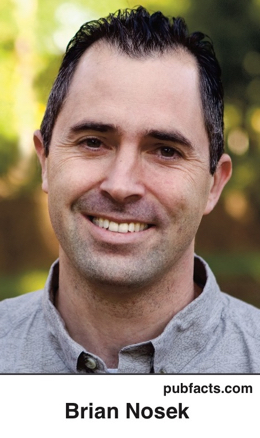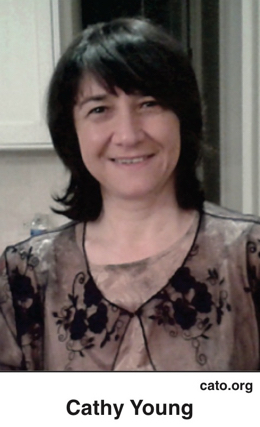Rascals case in brief
In the beginning, in 1989, more than 90 children at the Little Rascals Day Care Center in Edenton, North Carolina, accused a total of 20 adults with 429 instances of sexual abuse over a three-year period. It may have all begun with one parent’s complaint about punishment given her child.
Among the alleged perpetrators: the sheriff and mayor. But prosecutors would charge only Robin Byrum, Darlene Harris, Elizabeth “Betsy” Kelly, Robert “Bob” Kelly, Willard Scott Privott, Shelley Stone and Dawn Wilson – the Edenton 7.
Along with sodomy and beatings, allegations included a baby killed with a handgun, a child being hung upside down from a tree and being set on fire and countless other fantastic incidents involving spaceships, hot air balloons, pirate ships and trained sharks.
By the time prosecutors dropped the last charges in 1997, Little Rascals had become North Carolina’s longest and most costly criminal trial. Prosecutors kept defendants jailed in hopes at least one would turn against their supposed co-conspirators. Remarkably, none did. Another shameful record: Five defendants had to wait longer to face their accusers in court than anyone else in North Carolina history.
Between 1991 and 1997, Ofra Bikel produced three extraordinary episodes on the Little Rascals case for the PBS series “Frontline.” Although “Innocence Lost” did not deter prosecutors, it exposed their tactics and fostered nationwide skepticism and dismay.
With each passing year, the absurdity of the Little Rascals charges has become more obvious. But no admission of error has ever come from prosecutors, police, interviewers or parents. This site is devoted to the issues raised by this case.
On Facebook
Click for earlier Facebook posts archived on this site
Click to go to
Today’s random selection from the Little Rascals Day Care archives….
Click for earlier Facebook posts archived on this site
Click to go to
Today’s random selection from the Little Rascals Day Care archives….
When rationalizing is mistaken for reasoning
 June 2, 2015
June 2, 2015
“Psychologist Brian Nosek of the University of Virginia says that the most common and problematic bias in science is ‘motivated reasoning’: We interpret observations to fit a particular idea.
“Psychologists have shown that ‘most of our reasoning is in fact rationalization,’ he says. In other words, we have already made the decision about what to do or to think, and our ‘explanation’ of our reasoning is really a justification for doing what we wanted to do – or to believe – anyway.”
– From “The Trouble With Scientists: How one psychologist is tackling human biases in science” by Philip Ball at Nautilus (May 14)
“Motivated reasoning” ran amok during the “satanic ritual abuse” day-care panic, resulting in journal articles such as “Stress Responses of Children to Sexual Abuse and Ritualistic Abuse in Day Care Centers” and “Satanic Ritual Abuse: A Cause of Multiple Personality Disorder” – and legitimizing testimony by the prosecution’s expert witnesses.
Not surprisingly, Dr. Nosek has found examples of “motivated reasoning” in claims of recovered memory.
“In my intro psych course,” he told me, “I have one lecture that is centered around Lawrence Wright’s fascinating ‘Remembering Satan’….” (about a 1988 case in Olympia, Wash., involving not only SRA allegations but also false confession).
Lessons of ‘ritual abuse’ era still relevant today
 Nov. 19, 2014
Nov. 19, 2014
“While (‘The Witch-Hunt Narrative’ author Ross) Cheit… admits that there was some ‘overreaction’ and injustice to innocent people – including ‘five, possibly six, of the seven defendants’ in the McMartin case – he argues that the ‘Satanic panic’ hysteria is a myth rooted in exaggeration and distortion….
“Whether the book succeeds in making a dent in the witch-hunt narrative depends, to put it bluntly, on whether we can trust Cheit to give a fair and accurate account of this material. A close look reveals enough evasions, highly tendentious interpretations, and verifiable inaccuracies to conclude that we cannot….
“It is ironic, or perhaps symbolic, that this book has arrived in the midst of a new wave of sex-crime hysteria. Just recently, in the impassioned debate over the sexual molestation charges against Woody Allen, such feminists as Jessica Valenti and Roxanne Gay revived the call to ‘believe the survivor.’ The same mind-set also appears in the current campus climate of pressure to accept virtually all allegations of sexual assault regardless of evidence. Despite Cheit’s attempted debunking, the lesson of the witch-hunts still stands: Emotion-driven, faith-based crusades against repellent crimes are a grave danger to justice.”
– From “The Return of Moral Panic: A scholar tries – and fails – to rehabilitate the sex-abuse hysteria of the ’80s” by Cathy Young at reason.com (Oct. 25)
Young contributes a welcome follow-up to Debbie Nathan’s Cheit-busting response from the National Center for Reason and Justice. She is especially effective in pointing out Cheit’s fact-fudging and cherry-picking in the McMartin and Kelly Michaels cases.
A lack of reporters ‘sufficiently passionate to get at this story’?

thetennessean.com
Frank Daniels III
July 8, 2016
“As for an ‘investigative’ piece about the Kelly case that would get to the ‘truth,’ we will have to see if we have any staff members who are sufficiently passionate to get at this story….”
– From News & Observer executive editor Frank Daniels III’s reply (June 10, 1992) to a plea for coverage from Jane W. Duffield of the Committee to Support the Edenton Seven
Daniels’ predecessor, Claude Sitton, lamented later that “my greatest mistake (was) my failure as editor… to make sure we had a top-notch investigative reporter on the Little Rascals case.”
I’ve asked Daniels to share his own recollections of the paper’s coverage, but haven’t heard back.
![]()
Therapists, don’t commingle your forensic, therapeutic roles

Kirk
June 18, 2018
“Ted Cross, a senior research specialist at the University of Illinois School of Social Work, [said] separation of the two interventions – forensic and therapeutic – is critical for the child, but is also important for practical reasons: ‘You don’t want the therapeutic work to taint a criminal investigation. If a child is in therapy at the same time that the forensic interview takes place, the attorney representing the offender can say the therapist planted the idea of abuse in the child’s head.’.
“This point is of particular importance in the wake of high-profile cases such as the McMartin Preschool trial during the 1980s, in which therapists’ interviewing techniques were so suggestive that the children falsely accused their teachers of abuse….”
– From “How to Build a Space to Support Abused Children” by Mimi Kirk at Atlantic Cities (March 29)
Did the Little Rascals therapists offer children any therapy at all? What do you think?
![]()











0 CommentsComment on Facebook